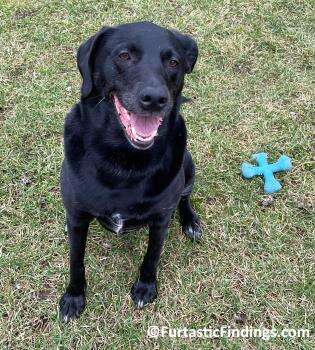
You may have noticed your dog is not acting the same way as other dogs you have had before or dogs you see around the neighborhood. They may seem withdrawn and maybe they don’t respond the same way as other dogs around certain stimuli. This may get you to wonder: Does my dog have autism? Is there even such a thing as dog autism?
This post will look at dog autism: does it exist, what are symptoms to look for, and treatment options available if you suspect your dog has this condition.
Table of Contents:
| Dog Autism: Does It Exist? | |
| What Is Canine Dysfunctional Behavior? | |
| What Are The Signs Of Autism In Dogs? | |
| What Kinds Of Dog Autism Treatments Are Available? |
Related: Dog Pneumonia: Signs, Symptoms, Treatment, Lyme Disease In Dogs, What Is IVDD In Dogs And Could My Dog Get It?, Degenerative Myelopathy Testing For Your Dog
Disclaimer: This post is meant to be informative and should not be taken as medical advice. Talk to your veterinarian regarding any health concerns you may have for your dog.
Dog Autism: Does It Exist?
The answer to this is: it depends on who you ask. Some people feel that dogs that exhibit certain symptoms that are similar in nature to human autism can be considered to have dog autism.
Other people believe that dogs do not exhibit the same social behaviors as humans, so it is impossible for a dog to have autism.
According to a study published in Nature, beagles with the Shank3 gene, which has been found in people with autism, “exhibited distinct and robust social behavior deficits including social withdrawal and reduced social interactions with humans, and heightened anxiety in different experimental settings”.
What Is Canine Dysfunctional Behavior?
Canine dysfunctional behavior or CDB, is the name given to dogs who exhibit these behaviors that are similar to human autism. So you may see dog autism and canine dysfunctional behavior used interchangeably.
What Are The Signs Of Autism In Dogs?
Dogs that are considered to have autism or CDB exhibit certain behaviors similar to a human with autism. This can include:
- Social, Behavioral, or Communication Symptoms.
- Engaging in repetitive behaviors such as:
- Circling a room.
- Chasing their tail.
- Obsessively grinds their teeth.
- Impaired social interaction, i.e. not wanting to be around people or other dogs.
- Your dog does not respond to you when you try to interact with them.
- They may seem to have a flat affect and not get excited or happy.
- Some dogs may line up their toys.
- Obsessive chewing of objects or themselves.
- They may be hypersensitive and overreact to certain sounds or loud noises.
- Avoidance of new experiences.
- Lacking interest in playing.
Not all dogs who exhibit these symptoms have dog autism. It is important to have your veterinarian examine your dog to be sure there isn’t any medical reason why your dog is behaving the way they are.
If there isn’t a known medical reason why your dog is exhibiting these behaviors, there are some options available to help treat their symptoms.
What Kinds Of Dog Autism Treatments Are Available?
If you suspect your dog may have autism, speak with your veterinarian about how best to treat their symptoms.
There are a few options of things you can do at home to ease their symptoms.
Decrease Anxiety
Autistic dogs can experience increased stress and anxiety. To help manage this symptom, you may want to try calming dog chews or CBD treats. These can help ease your pup’s anxiousness through included ingredients that can induce a feeling of relaxation, including L-tryptophan, theanine, and chamomile.
Decrease Fear
Dogs that exhibit a fear of loud noises or are skittish around people or other dogs may benefit from a Thundershirt or calming vest. These can benefit your dog by giving them a feeling of security.
Manage Compulsive Behaviors
When it comes to managing your dog’s compulsive behaviors, like excessive licking or chewing, they may need to go on medication, like Prozac.
Mindfulness
Be mindful of your dog’s issues. If they dislike being around people or are highly sensitive to loud noises, don’t put them in situations that will trigger increased fear and anxiety.
Dog autism or canine dysfunctional behavior can result in social isolation, difficulty communicating, and behavioral issues.
It is important to have your dog examined by your veterinarian to be sure there isn’t any medical reason why your dog may not be acting the way you think they should. Dog autism symptoms could be indicative of other issues your dog may have, so it is important to have them checked out by their veterinarian.
If your dog does have CDB, there are things you can do to help decrease their symptoms from helping to reduce anxiety to providing them with a sense of security. Be patient with your dog and speak to your veterinarian if you have any questions about your dog’s behavior.
Please check out our other posts on Health, Indoor, Outdoor, and Travel accessories for your dog, as well as Reviews of various products and travel destinations.